Podcast: Download (Duration: 49:37 — 46.2MB)
Get Notified Of Future Episodes Apple Podcasts | Spotify | Amazon Music | Android | Blubrry | Gaana | TuneIn | Deezer | Anghami | RSS | More
James gets a feeling of familiarity from Cary Jack, an Ezra Firestone vibe. Their recent acquaintance was orchestrated by mutual friend Mike Hill, who predicted the two would get along.
As a result, they’ve exchanged guest appearances on each other’s podcasts, fostering a growing professional relationship and some deep conversations.
On this occasion, Cary guests to share his SOULMAPPIN framework, a 10-point checklist for a fulfilling life.
He and James will discuss, among other things, selflessness, health, relationships, and getting off the gadgets.
They’ll share why money, though important to have, is not the be-all of a happy life.
And they’ll look at passions, purpose, being present, and connecting to the planet as ways to live a well-rounded, meaningful existence.
Table of contents
1. Some things in common
2. Balancing hustle with the happy
3. Weapons and wilderness
4. Cary’s SOULMAPPIN unpacked
5. How selfless are you?
6. Rating your health efforts
7. Getting off the devices
8. The relationships that count
9. Connecting to a higher power
10. The money side of things
11. Are you growing and evolving?
12. Making time for your passions
13. The stuff you do that makes a difference
14. Connecting to the planet
15. The importance of being present
Some things in common
Both Cary and James share, among other things, a background in acting. Reflecting on his experiences in the entertainment industry, Cary talks about the benefit of passive income, earned through residuals after working on a project. A very real challenge however, was the frequent rejection, regularly hearing “no,” which he believes has shaped his resilience as an entrepreneur.
James recalls working in the film “Muriel’s Wedding.” What struck him was the stark distinction in treatment between main actors and extras during the shoot. He draws a parallel from the film set, noting that society also has a class system, where people have varied experiences based on their roles and positions. How one navigates life, says James, can determine their experience.
Balancing hustle with the happy
When James first heard Cary’s philosophy of the “happy hustle,” his reaction was skepticism towards the hustle part. The term conjured up notions of stress and relentless work.
James had his own experience of being immersed entirely in the hustle, before being able to dial in the happy. Too many individuals now, he says, emphasize the grind without considering the importance of well-being.
In Cary’s personal journey, he at first was also caught up in relentless hustle, even venturing into illicit activities. The result was burnout, which prompted him to reassess his priorities.
Despite significant success with a tech company in New York, Cary’s dissatisfaction led him to move to Bangkok, Thailand. It was there that he began integrating happiness into his work routine, giving birth to the idea of the “happy hustle”.
Cary now focuses on guiding other entrepreneurs to find a balance between hard work and personal fulfillment.
James likes the approach. It’s refreshing, he says, to see someone promoting hard work and happiness combined.
Weapons and wilderness
Both Cary and James own katanas. Cary used to slice fruit with his blade, alarming neighbors. He does have a background, however, in martial arts, having trained with a priest and Kung Fu master from Wudang mountain.
More recently, Cary has organized unique mastermind retreats in the wilderness of Montana. These retreats take high-performing entrepreneurs on backcountry adventures where they can detox from the digital, learn survival skills, and discuss personal and professional challenges, often resulting in significant business breakthroughs.
James’s personal entrepreneurial journey includes networking opportunities that changed his life, such as a memorable trip in the Mexican desert with a group of millionaires, before he was one. He underscores the importance of entering challenging situations to foster personal growth, and to bet on oneself.
Both Cary and James believe in the value of masterminds and networking. Face-to-face interactions, to them, even brief ones, can yield significant insights and opportunity for entrepreneurs.
Cary’s SOULMAPPIN unpacked
Cary has devised the framework SOULMAPPIN as a tool to help individuals address the imbalances in their lives. It was developed from his own experiences combating burnout.
It begins with an assessment, because to truly effect change, he says, one must first become aware of the problem. Cary offers to put James through the assessment, as a challenge of vulnerability and self-awareness.
James is up for it. He recalls his early business days, however, when he had to put on emotional armor to survive in a challenging industry. He has since recognized the need to be more open and vulnerable.
How selfless are you?
The S in SOULMAPPIN stands for “selfless service,” a measure of a person’s altruism. It operates on a grading scale ranging from one to five, five being the highest score.
Cary clarifies that participants should evaluate themselves based on their actions in the last 30 days rather than their entire life. The assessment asks people to reflect: are they living primarily for themselves, or dedicating time, money, and expertise to benefit others?
A score of five implies active and regular volunteering and contributions, while a score of one suggests a primary focus on personal interests.
James rates himself a three. Cary tells him to note it, and encourages listeners to actively engage with the exercise, stressing its potential benefits for personal knowledge and growth.
Rating your health efforts
Next is O for “optimized health,” a significant marker, especially when one lacks it. Cary prompts James to rate himself on his current state of health, considering mental, physical, and emotional well-being. A score of five represents optimal health.
James confidently rates himself a five out of five. He wears an Oura ring, has gotten DEXA scans, and has lost 12 kilograms of excess body fat in just the last three months. He’s in better shape than he’s been since his 20s.
Cary gives James kudos, and hints at a more comprehensive system in his book to improve scores in different areas – an acronym within the acronym, you could say. An inception acronym, quips James.
Getting off the devices
Cary moves on to U, being “unplugged digitally,” which means regulating one’s use of technology to avoid being controlled by devices.
James maintains a healthy distance from his devices, he says, often leaving his phone in another room and not taking it to bed. He comments on today’s pervasive device dependency, noticing that people are glued to their phones even during meals and at coffee shops.
Cary is concerned about the dangers of people on their phones while driving, especially as a motorcycle rider. He says it’s important to be intentional with device usage, and suggests regular “dopamine detoxes” to break free from digital distractions.
James speaks of the challenges modern children face with screen addiction. He and Cary believe early tech exposure can be bad for children’s health, and James strongly advises against it, especially in the formative years.
The relationships that count
With L, Cary introduces the topic of “loving relationships” and emphasizes their importance in a person’s life. He reflects on people who might achieve professional success, but whose personal lives are in shambles. Meaningful relationships, he says, are vital for both emotional fulfillment and longevity.
James mentions a time when he wasn’t satisfied with his relationships’ quality. He took it on himself to make significant, albeit difficult changes, and achieved a turnaround in his personal connections.
Cary commends James for taking necessary action and stresses the importance of awareness and proactive adjustments in relationships.
Connecting to a higher power
Moving past SOUL to MAPPIN, talks “of mindful spirituality,” saying it’s important and beneficial to have faith in something greater than oneself, regardless of specific religious beliefs. He suggests methods such as breathwork, meditation, and prayer as ways to connect to a higher power.
James rates himself in this area a four, explaining that while he’s not particularly religious, he feels a deep connection with nature and possesses a strong intuition and sense of empathy. He also touches on the importance of self-honesty in these evaluations, noting that if one sees no areas for improvement, it could hinder personal growth.
The money side of things
For A Cary discusses “abundance financially,” pointing out that while many entrepreneurs prioritize financial success, it should be viewed as equally important as other aspects of life.
Financial abundance contributes to being a “happy hustler,” and it involves wisely saving, investing, and spending.
James rates himself high in this category, having built a stable financial foundation over the years. However, both he and Cary emphasize the danger of always wanting more — the “more disease.” They advocate for gratitude and being content with what one has, instead of seeking constant acquisition.
They also speak of alternate ways of defining personal success, striking a balance between financial achievements and enjoying creative and time freedom with family.
Are you growing and evolving?
The first P in MAPPIN stands for “personal development,” highlighting the importance of continuous growth and evolution.
Cary shares his 30-30-30 system: half an hour of reading in the morning, 30 minutes of listening in the afternoon, and another half hour of watching something in the evening – all educational and inspirational content. He warns, though, against merely accumulating knowledge without practical application.
James resonates with the idea, sharing his own philosophy of balancing content creation and consumption for effective messaging and personal growth.
They both highlight the value of being selective in media consumption, with Cary suggesting a focus on one’s “dream 100” – one’s top 100 influential figures or businesses in one’s niche – turning social media scrolling into productive market research.
Making time for your passions
The second P addresses the importance of making time for passionate hobbies, especially for high performers.
Cary says many dedicated professionals neglect personal interests due to guilt or prioritizing returns on investment. He advocates guilt-free fun, pointing out that creative breakthroughs often come during leisure activities.
James agrees. Hobbies like his daily surfing, he says, not only provide relaxation but also indirectly reinforce the business by exposing weaknesses in its systems and structures while he’s away.
Both Cary and James are for balancing work with personal passions, which can foster both personal growth and resilience in business.
The stuff you do that makes a difference
I centers on “impactful work” and its significance. Cary defines impactful work as a blend of personal passion, outward purpose, and positive societal impact. He warns against getting trapped in a cycle of chasing money and not genuinely fulfilling a mission. It’s important, he says, to be clear about the problem one feels called to solve, the target audience, and one’s unique approach to resolution.
James agrees. He believes, after refining his business over time, he has achieved a high level of impactful work, evidenced by positive feedback and emotional responses from his clients and followers.
Connecting to the planet
Cary rounds out his framework with N, the importance of connecting with nature, not only for personal well-being but also for the health of the planet.
He highlights conscious consumption and supporting eco-friendly corporations. He himself is involved in a company focusing on fighting plastic pollution and climate change.
James rates himself highly in terms of nature connection, walking barefoot regularly through the bush and surfing, and having a commitment to environmental consciousness.
The importance of being present
Cary emphasizes the significance of being present in each of the aforementioned 10 areas of life. A common problem, he says, is where individuals find their minds wandering elsewhere while engaged in a particular activity or with certain people.
Cary believes that when one is truly present in the moment, whether it’s during work, meditation, or spending time with loved ones, life becomes richer and more fulfilling.
James expresses his appreciation for Cary and his time. Their conversations have an energizing effect, he says. Future collaborations could be in the offing.
You’ll find more of Cary at thehappyhustle.com. And his book is at thehappyhustle.com/book.
Enjoyed the show? Leave us a review on iTunes
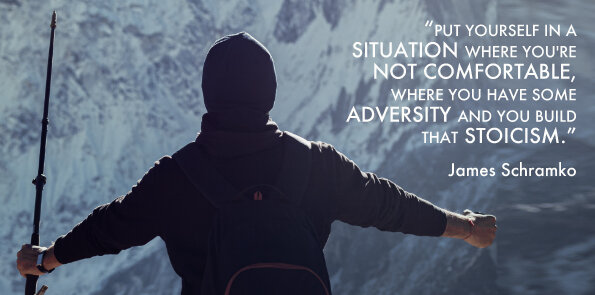
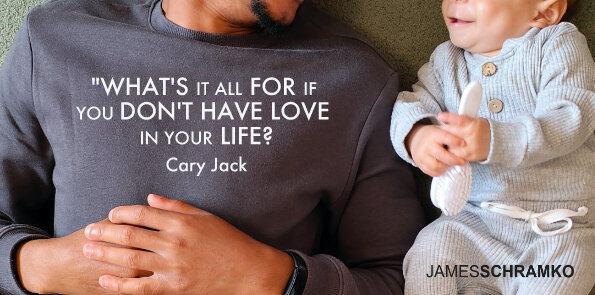
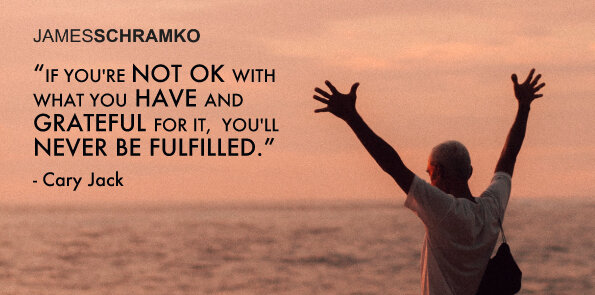
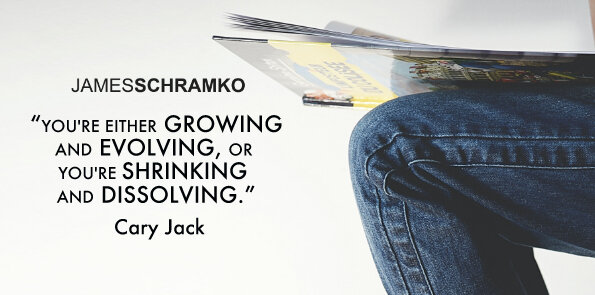
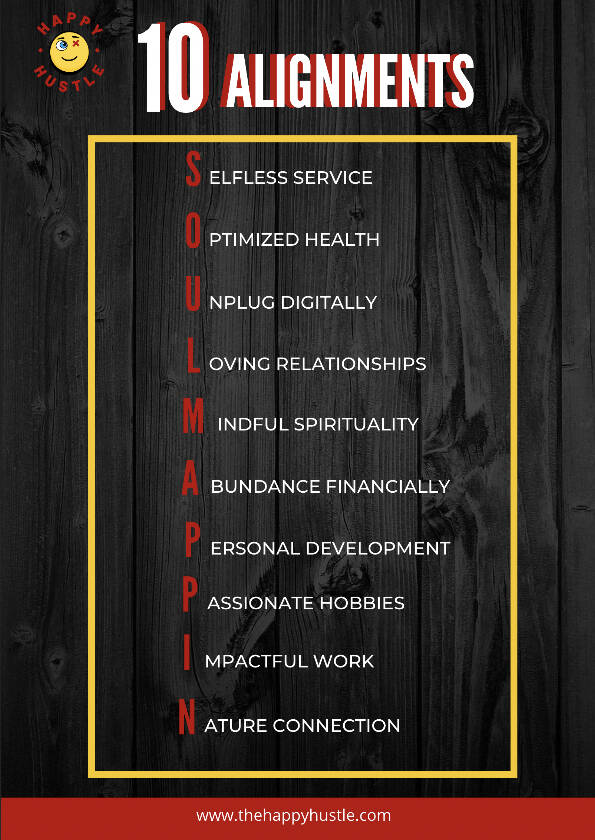

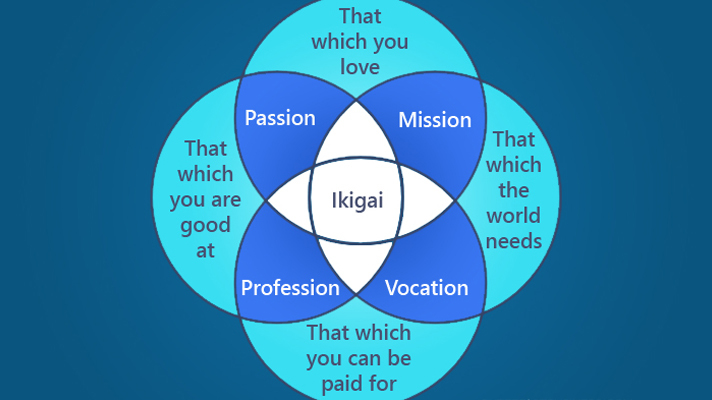







Leave a Reply